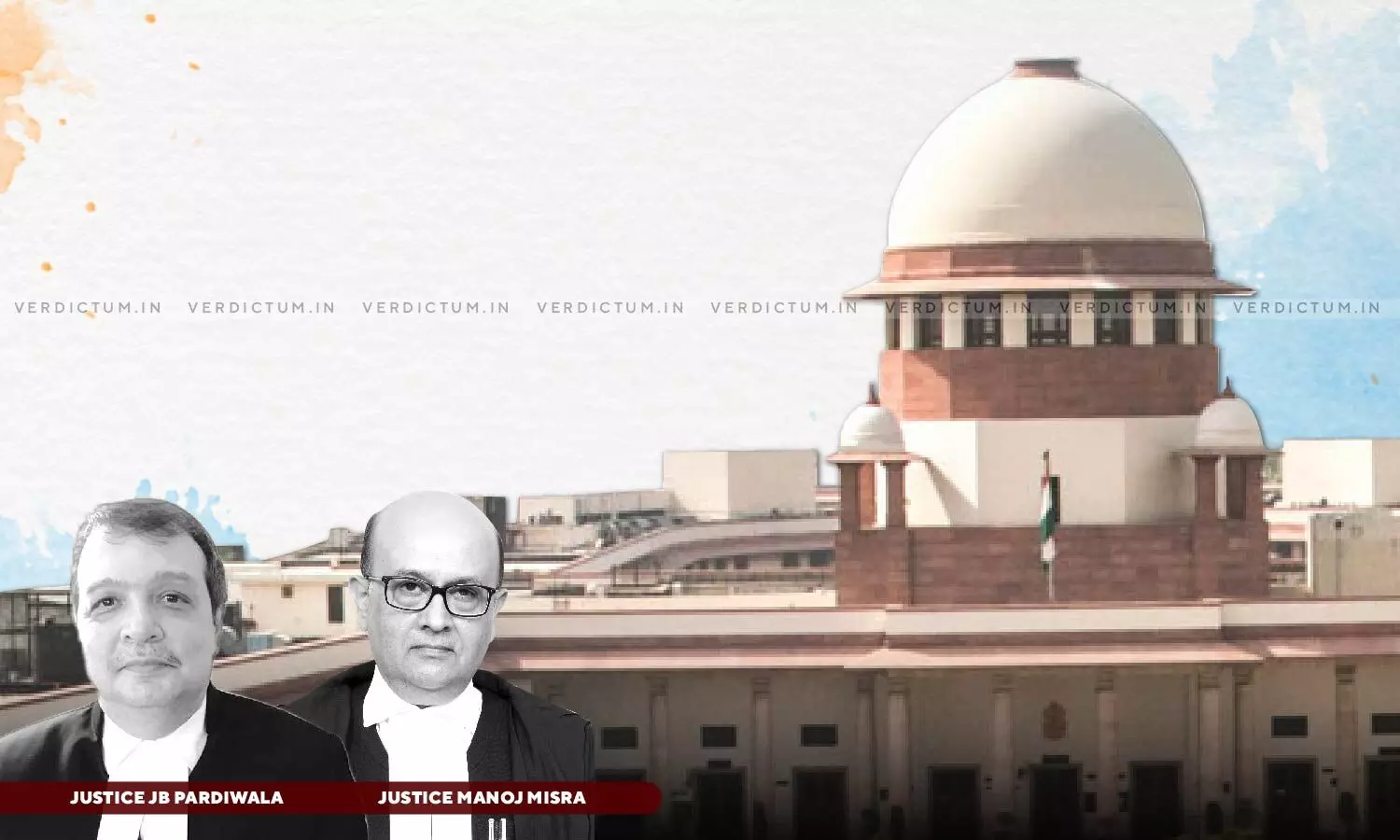
Strict Adherence To Rule 142(2) Of BSF Rules Is Warranted Before Accepting Plea Of Guilty- SC Upholds High Court's Order Setting Aside Punishment Of Dismissal
 |
|The Supreme Court while upholding the High Court's order of setting aside punishment of dismissal of a constable who was accused of taking photographs of a lady doctor while she was taking a bath has observed that strict adherence to Rule 142(2) fo the Border Security Force (BSF) is warranted before accepting the plea of guilty.
The Court observed, "Since, the procedure laid in subrule (2) of Rule 142 serves an important purpose and is for the benefit of an accused, in our view, its strict adherence is warranted before accepting a plea of guilty."
Finding that the High Court was justified in finding the dismissal of the original petitioner based on the plea of guilty unwarranted and liable to be set aside in exercise of powers under Article 226 of the Constitution of India, the Supreme Court held that that on the accused pleading guilty, before a finding of “Guilty” is recorded, the Summary Security Force Court (SSFC) is not only required to ascertain whether the accused understands the nature and meaning of the charge to which he has pleaded guilty but it must also inform the accused of the general effect of that plea and of the difference in procedure which will be made by the plea of guilty.
The Apex Court held so while considering an appeal challenging the judgment, whereby the Delhi High Court had set aside the punishment of dismissal from services of BSF imposed upon the original petitioner by the SSFC and directed for his entitlement to full consequential benefits except salary to the extent of 50%.
A Two Judge Bench of Justice Manoj Mishra and Justice J.B Pardiwala observed that “when the original petitioner had raised a plea before the High Court that his confession was involuntary and that in fact no confession was made by him, there was a serious burden on the non-petitioners (i.e., the appellants herein), to satisfy the conscience of the High Court that there had been due compliance of the procedure and that the confession was made voluntarily. More so, when the record of evidence contained no worthwhile evidence regarding the guilt of the original petitioner”.
In the said backdrop, the Bench stated that SSFC ought to have advised the original petitioner to withdraw the plea of guilty as per provisions of subrule (2) of Rule 142 of the BSF Rules, 1969.
Advocate R. Balasubramanian appeared for the Petitioner whereas Advocate Yasobant Das appeared for the Respondent.
The brief facts of the case were that the Respondent was a Constable in the Border Security Force (BSF) and posted as a security aide to a lady doctor. While his posting, he was accused by a lady doctor of capturing her on camera while she was bathing. The matter was reported to the Chief Medical Officer. During the investigation, the BSF authority found a camera from the house of the neighbor of the lady doctor. Thereafter, under the order of the Battalion Commandant, the respondent was investigated under Section 40 of the Border Security Force Act, 1968. Here the respondent was found guilty by the Summary Security Force Court (SSFC). Consequently, the Respondent was dismissed from services.
Later, the Respondent filed an appeal under Section 117 of the BSF Act, 1968 before the Appellate Authority. But the same was rejected by the Director General, BSF. Hence, the Respondent approached the High Court, which answered in favour of the Respondent. As a result, the Union of India and BSF administration are in appeal before the Supreme Court.
After considering the submission, the Bench noted that the order of dismissal from service was based on the Respondent’s acceptance of his guilt before the SSFC.
However, the Bench mentioned sub-rule (3) of Rule 49 of the BSF Rules, 1969 to state that the abstract of evidence and twenty-four hours for reflection were not provided to the Respondent, which is a clear infraction of the said proviso.
The Bench also highlighted that the trial had to proceed as per Chapter XI of the BSF Rules, 1969 and the statement recorded during the investigation could have been used as a previous statement of the witness to cross-examine the witness.
The Apex Court specified that “though the plea of guilty was recorded during the investigation, the same was not signed by the Respondent, it was signed by the Commandant 128 Battalion BSF.”
The Apex Court also observed from a plain reading of sub-rule (2) of Rule 142, that on the accused pleading guilty, before a finding of “Guilty” is recorded, the SSFC is not only required to ascertain whether the accused understands the nature and meaning of the charge to which he has pleaded guilty but it must also inform the accused of the general effect of that plea and of the difference in procedure which will be made by the plea of guilty.
Finding that there is no indication as to how the accused was explained the broad consequences of his pleading guilty, the Apex Court dismissed the appeal, and confirmed that no useful purpose will be served in re-opening the proceeding from the stage where the error crept, as there was hardly any evidence on record and nearly a decade had passed since the date of the incident.
Cause Title: Union of India and Ors. v. Jogeshwar Swain [Neutral Citation: 2023: INSC: 802]